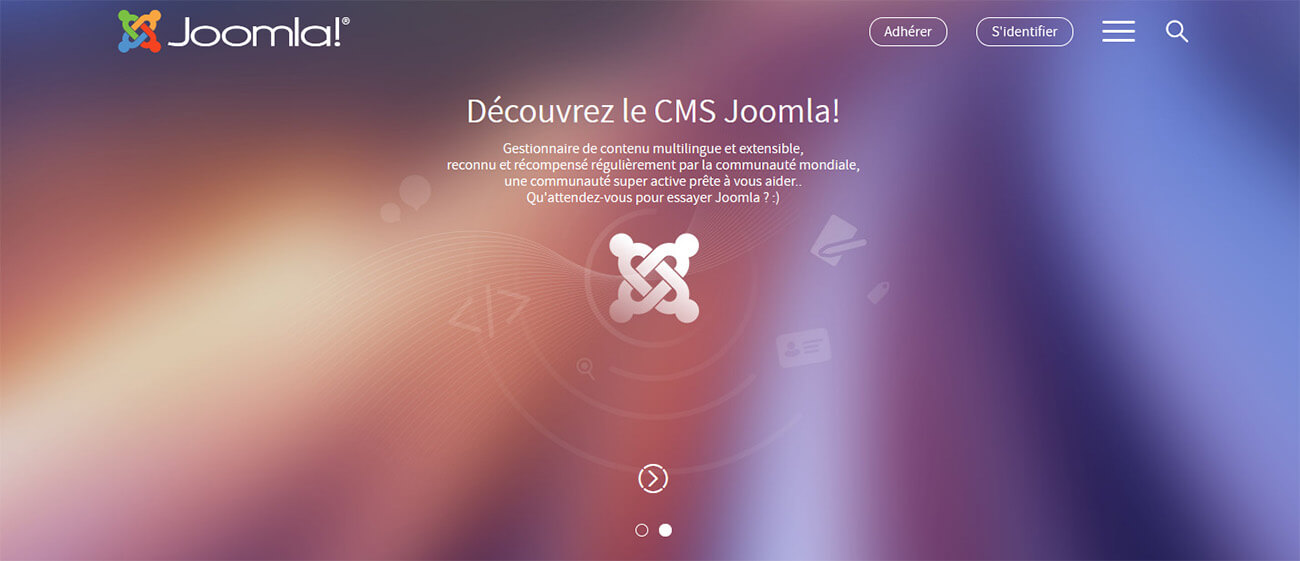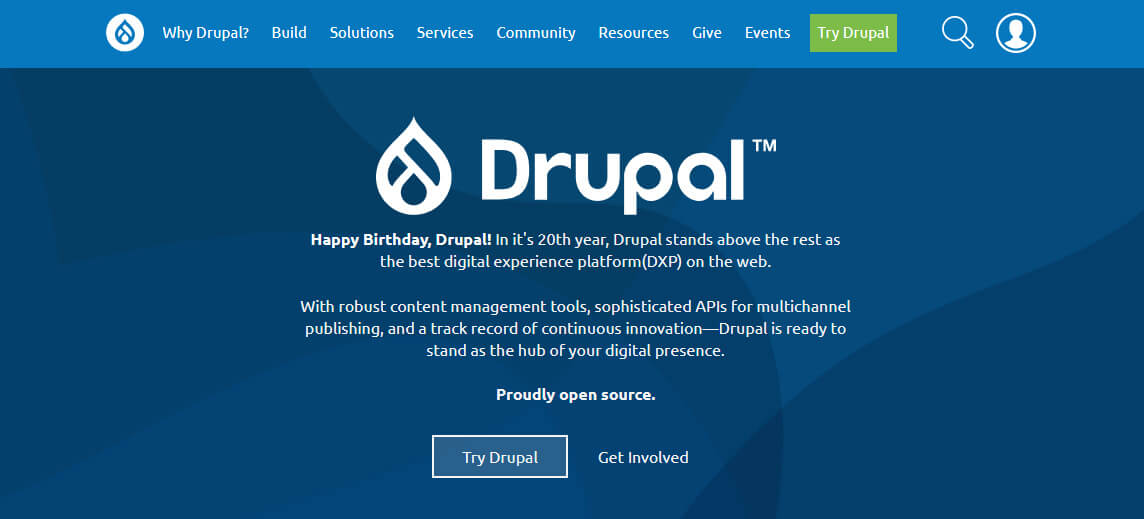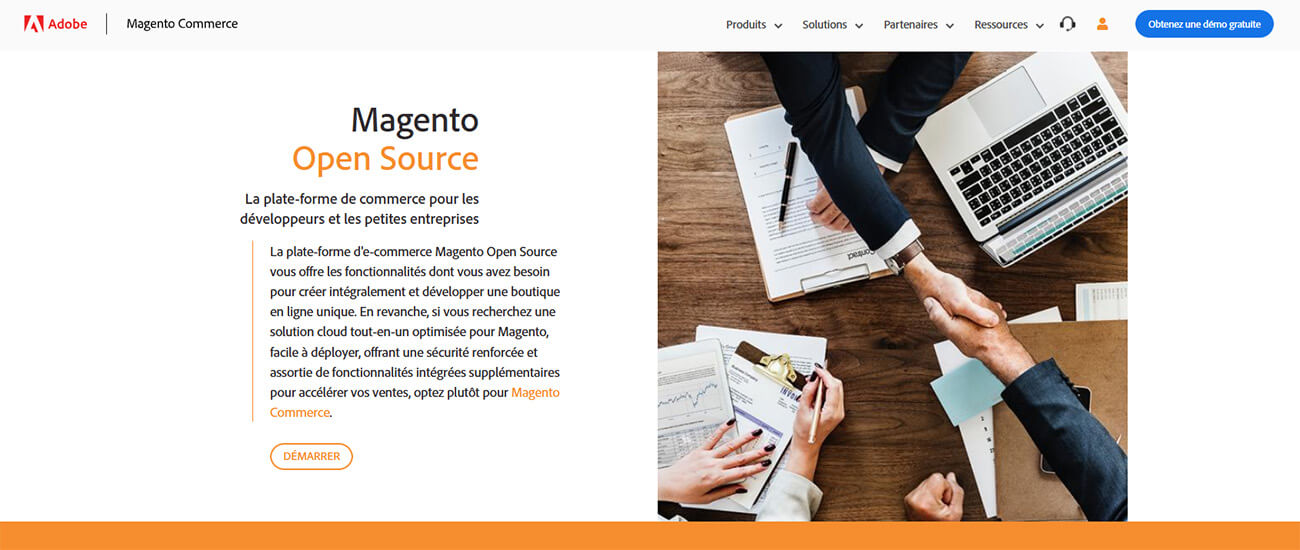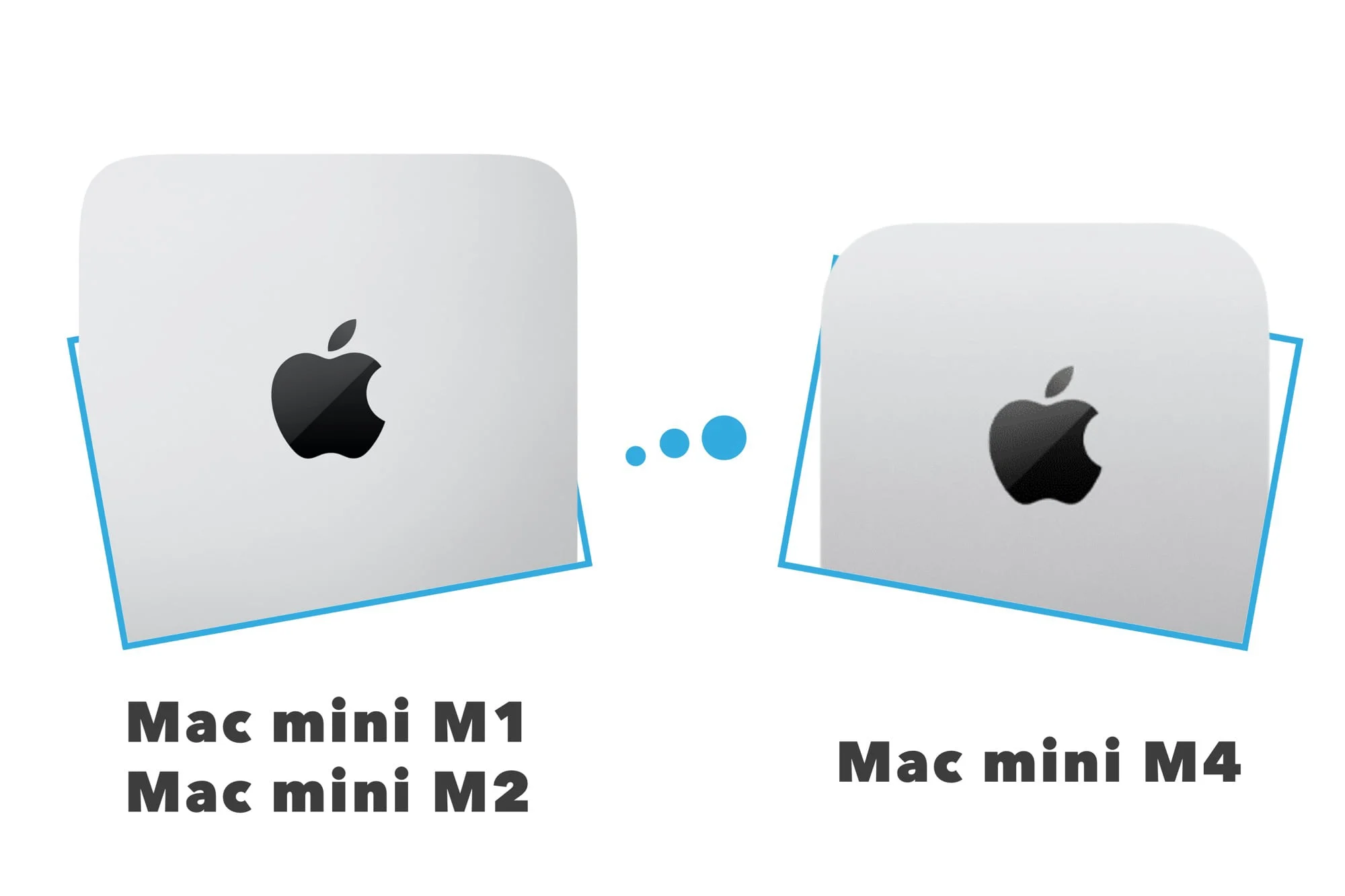If you are looking to create a quality website, you are most likely looking for the “right” CMS (content management system). Indeed, the options are really numerous and many will meet specific needs. To help you in your approach and especially in your final choice of CMS, we have selected and compared the options that we judged to be the best in 2024.
Following you will find: a complete definition of what a CMS is, then our ranking of the best content management systems currently available.
What is a CMS? Full definition
To start this article off right, we thought it would be good to provide a quick reminder by clearly defining the term “CMS” or “content management system”. Do you already know what this means? In this case, we let you continue reading with our complete comparison.
If the term CMS doesn't mean much to you, here is our definition.
A CMS (Content Management System) is a tool that will allow you tocreate and manage a website. And all this, without touching a single line of code.
You will in fact be able to rely on a template and an administration interface which will give you the possibility of creating and personalizing your site in a relatively simple way.
That being said, although it is not obligatory to touch the code of your site, know that you will very often have the opportunity to do so. However, you will need to have relatively solid knowledge of CSS, HTML, or even PHP.
Ranking of the best CMS (Content Management Systems) in 2024
Now that you know what a content management system is, we will be able to present to you, one by one, the 8 CMS that seem to us to be the best at the moment.
Whether you are looking tocreate a blog, a showcase site, oran online store, one of the solutions listed below will necessarily meet your needs and expectations. We therefore let you discover our ranking.
It is worth noting that the latter is not based on the market shares of each content management system. And this even if WordPress (which is the most used CMS) appears in first position.
1) WordPress

© WordPress
Not surprisingly, in addition to being the most popular CMS, WordPress is in our opinion the best.
Whether you are a beginner or someone experienced in the field of site creation, you will inevitably find what you are looking for by opting for this open source and freely available content management system.
However, be careful about one thing, we are talking here about WordPress.org (the CMS) and not WordPress.com, the paid solution of the same name allowing you to create a website almost automatically.
With WordPress, you will be able to create any type of site. There are absolutely no limits at this level. When it comes to the knowledge required, even as a novice, you will be able to get by. There is no doubt about it.
The community around this CMS is enormous (both in France and around the world). You will therefore have no trouble finding help, tutorials, guides. We also publish them regularly in order to assist you (you can find a recap here).
Coming back to WordPress, what makes it the best content management system is also the very large number of themes and plugins that exist. You will have access to several thousand free but also paid options. You can alsoconsult our ranking of the best WordPress themesif you are interested.
From an SEO point of view, everything is also done so that your site can position itself well on search engines. By installing an SEO plugin, you will be able to have an influence on absolutely all aspects that come into play from a natural referencing point of view. Finally, WordPress remains a CMS that can be personalized without any limits.
Does he have any weak points? The only “weak point” that we can think of is the fact that you will have to manage the web hosting of your site. WordPress is in fact not an all-in-one solution (unlike other CMS which we will tell you about later).
Do not hesitate toconsult our comparison of the best WordPress hostsin order to make the right choice at this level. You can easily get by for a few euros per month (while having a free domain name).
Discover Hostinger’s accommodation
2) Joomla

© Joomla
Joomla is not as well known and used as WordPress but, nonetheless, it remains one of the best CMS. The first thing to note is that it is available for free and is completely open source.
Joomla appeared in 2005, which has allowed it to offer more and more plugins, templates, and features over the years.
Now, just like WordPress, it is good for you to know that you will necessarily need web hosting in order to put your site online via this content management system.
This does not pose a big problem since there are web hosting sites optimized for Joomla and through which you will be able to install it almost automatically.
What are the strong points of the Joomla CMS? You will be able to create any type of site, and even an online store if you wish. Joomla will also offer you a lot of flexibility, which will allow those of you who feel capable of coding to personalize their site as much as possible.
Although it is possible to administer a Joomla site without touching the code, we must admit that overall, this solution is a little more complex to use than WordPress. You will really have to take the time to master its interface and all the options offered.
The other small weak point of this excellent CMS is that the number of plugins and themes offered remains more limited than with its direct competitor. It is not an end in itself but who would say no to an ever more consequential choice?
If you are lookingweb hosting to set up a Joomla site, we recommend that you look at Hostinger's shared plans. They are inexpensive, optimized for the CMS, and you can also benefit from a 30-day money-back guarantee.
Discover Hostinger's Joomla plans
3) Drupal

© Drupal
Do you want to set up a large site, with a lot of data to manage, all while benefiting from maximum security? If this description meets your expectations, then Drupal is certainly the best CMS.
It is another content management system available for free and completely open source.
Now, this CMS is not the easiest to manage, customize, etc. For this reason, we do not recommend it to novices. Drupal is aimed more at informed people as well as developers.
That being said, we must leave one thing to Drupal: it is relatively easy to manage and publish content from its interface. The other very positive aspect is that you will be able to completely manage the roles of the employees who would be required to work on your site. And this without installing any plugin.
With Drupal, you will also be able to benefit from community support available directly on the open source CMS website.
We haven't specified it yet, but like WordPress and Joomla, you're obviously going to need web hosting. If you are looking for an affordable and optimized solution for Drupal, we can recommend the PlanetHoster host:
Discover PlanetHoster’s offers
4) Jimdo
© Jimdo
Jimdo is a CMS that is a little different from those that we have been able to present to you until now. For what ? Well because it is not open source and not really free.
This does not take away from the fact that it is one of the best content management systems in 2024.
The big advantage it has over the competition is that it will give you the opportunity to benefit from a turnkey solution. Here, and unlike WordPress, Joomla, Drupal, you will not have to manage the web hosting aspect.
In addition, in order to personalize your site to your image, you can rely on a click/drag system that is extremely easy to use. To give you an idea, even if you have never had the opportunity to create a site, you will be able to do it with this site creation software.
How much will this cost you since Jimdo is not a free CMS?
Well you will have the choice between different plans (including one which is free but too limited for our taste):
Do not hesitate to click on the prices to have more information regarding the differences in functionality, power, etc. You can also read ourJimdo reviewin order to get our thoughts on this excellent content management system.
5) Site123
© Site123
Site123is, like Jimdo, a little different from the other options presented in our ranking of the best content management systems.
Here we are not talking about an open source CMS and even less about a free solution. In reality yes, you can use itto create a site for free, but we do not recommend it. Indeed, if your goal is to have a professional platform capable of positioning itself as it should on search engines, the free Site123 plan is not for you. It is better to go with its paid offer which is availablefrom $12.80/month.
You will have a free domain name for 1 year, 10 GB of storage, 5 GB of bandwidth per month, you will not have to endure advertising, and you can even create an E-Commerce site.
From a usage point of view, Site123 is based on the same operation as Jimdo. Everything will be done using an administration panel via which you will be able to add/delete/move elements via a simple click/drag.
Compared to a CMS like Drupal, as good as it is, the solution offered by Site123 will be perfect for people who don't want to bother and who especially don't have a lot of experience in the field.
6) Typo3

© Typo3
Typo3 is a management system that is much less known than most of the names mentioned so far. However, it absolutely did not steal its place in this ranking of the best CMS.
Typo3 has been around since 1998 and is a free open source system. Why is it much less known than others? Well the main reason is that this CMS is aimed at a fairly specific clientele.
Indeed, Typo3 is above all designed and optimized for the creation and management of business sites – intranets.
As a result, the content management system offered by Typo3 has no problem managing large websites, as well as multilingual sites. The number of extensions that are offered is quite impressive with more than 6000 different solutions. Just like with Drupal, you will appreciate the simple management of rights for each person/stakeholder working on your site.
That said, everything is not rosy. This CMS, which is more geared towards a professional clientele, does not offer a huge number of themes, which means that there is a good chance that you will need to hire someone in order to develop a theme that will meet your expectations.
This observation is somewhat the same with regard to the deployment and configuration of a site based on the Typo3 content management system. This is clearly not a solution that will suit someone with little knowledge on the subject. You will therefore need to have some technical expertise to get started (or be able to hire someone who has this expertise).
7) PrestaShop

© PrestaShop
Are you looking to create an online store relatively quickly and easily? PrestaShop is certainly one or even the best CMS to carry out such a mission.
It is an open source content management system and offered free for installation by many web hosts (see our comparison of the best PrestaShop hosts). In this regard, the host we recommend you use is Hostinger. The latter offers efficient hosting, quality customer support, as well as competitive prices.
Discover Hostinger’s PrestaShop hosting
To return to the subject of our article, the best CMS, PrestaShop has the advantage of being used by a relatively large community in the world of E-Commerce. You will therefore have no trouble finding help, advice, or people with whom to discuss your questions, problems, etc.
Since it is a free content management system, you will not have to pay anything extra if your online store ever grows. The only thing you'll potentially need to consider is upgrading to a slightly more powerful hosting plan.
What about the features, plugins, or even themes offered by PrestaShop? From a features and plugins point of view, we can assure you that you won't miss anything. The choice at this level is substantial.
On the other hand, when it comes to themes, we found that many were not of very good quality (not optimized, somewhat dated design). You will need to take the time to analyze the options offered so as not to make a mistake... and have to make a complete change after a few months of use.
Is PrestaShop easy to use? It's not the easiest CMS to use. You will therefore need to be patient in order to best understand how it works. At first, especially if you are relatively new, this might discourage you. Hold on and document yourself! After a few weeks of use, you will start to appreciate it.
8) Magento

© Magento
We have already arrived at the last member of this ranking for the best content management system. Magento, like PrestaShop, is a CMS that specifically targets the E-Commerce market.
If you are looking to create a blog or a “classic” website, you can therefore move on and consider WordPress or Joomla instead.
Bought a few years ago by Adobe, Magento remains an open source and free solution. You can therefore install it onmost web hosting. Our recommendation at this level is towardsHostinger’s Magento hosting. With it, you will be able to get started easily.
What are the strong points and weak points of this CMS? We'll start with the highlights.
Magento is a solution that can be customized from top to bottom. For this, you can rely on a number of plugins and extensions. In terms of managing the number of products and customers, Magento will be able to respond to impressive volumes.
Finally, you will have the possibility of connecting a large number of payment platforms. In this regard, by default, you can add the option of payment via PayPal or bank transfer.
As for the disadvantages of this content management system, we noted: its relative complexity of handling (it is clearly not the best E-Commerce solution for creating your first online store), the scarcity of competent developers with this CMS, as well as relatively absent customer support.
Indeed since the product is operated by Adobe, customer support focuses mainly on the paid solutions offered. You can only rely on the existing community forum.
Conclusion
Here we are already at the end of this comparison and ranking of the best content management systems available in 2024.
As you can see with our top 8, there are solutions for absolutely all needs.
That said, it is clear that certain CMS are to be preferred because they are more regularly updated, have a larger community, support more plugins, or even have more themes.
For all these reasons, our #1 choice remains WordPress.
By opting for this content management system, you simply cannot go wrong.
Just remember to pair it with a quality web host to avoid problems later. Indeed, whether you opt for WordPress, Joomla, Drupal, PrestaShop, Typo3 or Magento, you will need to support them with web hosting. Without it, you simply won't be able to put your website online.
If you still have doubts about which host you should choose, we strongly advise you to take a look at ourdetailed comparison of the best hosting providers. Also remember to browse the rankings and comparisons that we have been able to make about optimized hosting (for WordPress, Joomla, etc.). This will help you get a better overview of the market.
In most cases, the host we can recommend isHostinger. Extremely efficient, it has responsive customer support and makes its hosting available at really reasonable prices:
Frequently asked questions
Do you still have questions about CMS and how they work? Check out the following FAQ, hope it can help you.
What is the best CMS for creating a first website?
After taking the time to test a lot of different CMS, we are of the opinion that the most suitable one to start with isWix. Although it is not the most affordable option, Wix will give you the opportunity to create a professionally designed site, even if you do not have prior knowledge in web development.
This is made possible in particular by its editing tool and the numerous site models that it makes available.
Is Shopify a CMS?
To be perfectly correct, Shopify is an e-commerce platform that offers a CMS. Thanks to this content management system, you will be able to manage a lot of aspects related to your online store (products, stocks, payments, blog articles, and much more).
That being said, if you are looking to create an e-commerce site, we advise you to opt for WordPress (coupled with WooCommerce) or Wix. Both services will offer you more features and the total cost will be much lower than with Shopify.
What is the most used content management system?
The most used CMS in 2024 is WordPress.org. This open source and free content management system has been ultra-dominant for many years now.
According to different sources, more than 40% of sites available on the Internet use WordPress. Next in order: Shopify, Wix, Squarespace, Joomla and finally Drupal.






